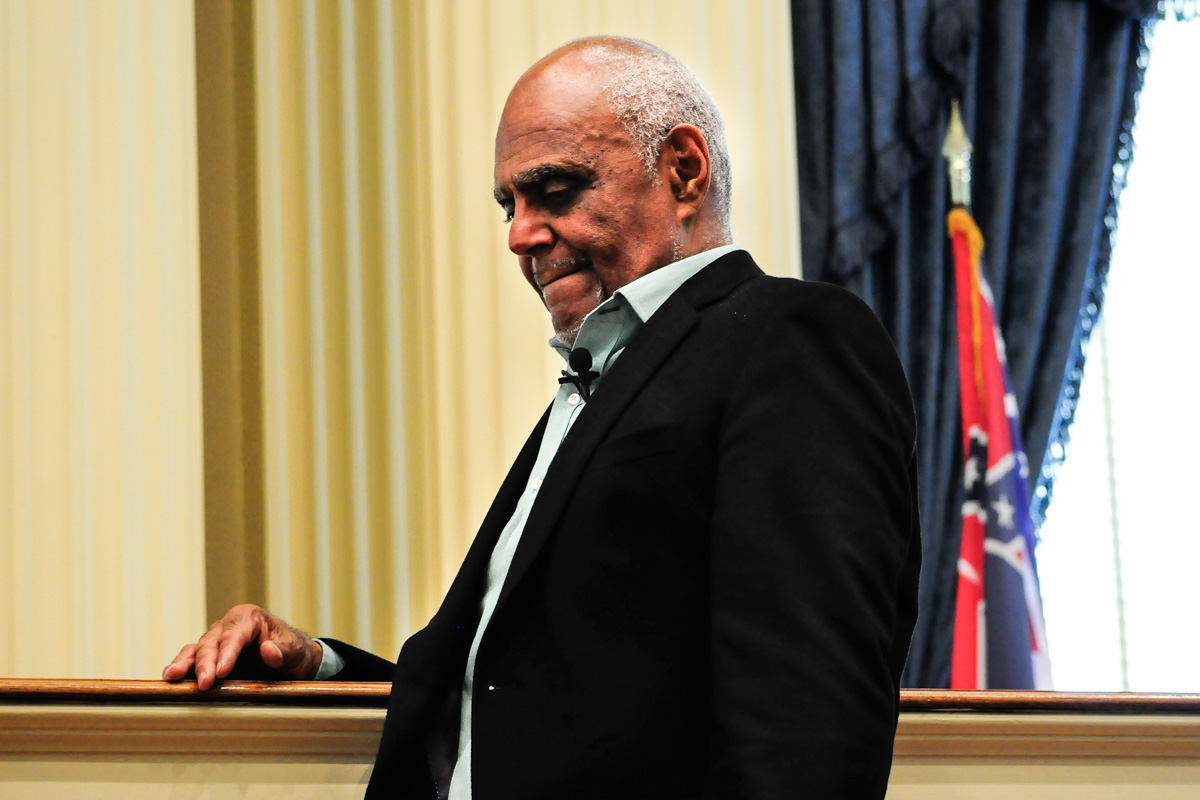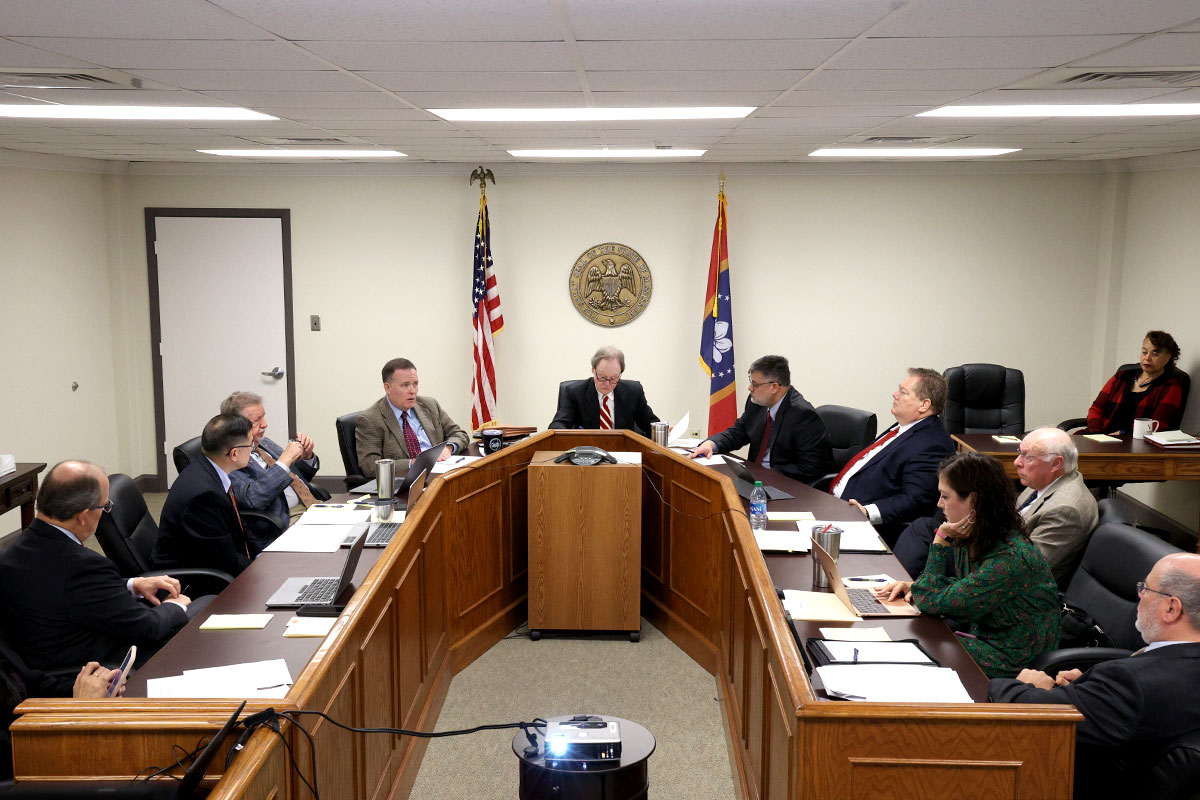I learned a powerful lesson from American hero Bob Moses back in 2003 at the commemoration of the lives of James Chaney, Andrew Goodman and Michael Schwerner in my home county 39 years to the day after popular local white businessmen and law enforcement executed them for fighting for Black freedom.
“One of the best things about this country is that you can live a life in struggle,” Mr. Moses said from the pulpit of Mt. Zion Methodist Church, the Black church the civil-rights workers visited on their last day alive as it lay in ashes. He had just asked all of us to recite the preamble to the Declaration of Independence with him: “I hold these truths to be self-evident ….”
It was that day when I first understood what freedom and democracy really are—essentially the right to keep fighting repeatedly not to just achieve it, but to keep it. That our expectation can never be that it will be there without care and attention, without work, without losses along the way. As Mr. Moses’ words seared into my consciousness, it hit me in the face that “the American dream is just that: a struggle,” as I wrote then. And in struggles, you win some, and you live to fight another day. You just must be willing to keep going, to not give up, to demand and protect democracy.
Government Transparency is Key to Progress
I thought of Mr. Moses’ lesson Thursday when attorney Rob McDuff sent me a recommendation written by Tom Hood, the director of the Mississippi Ethics Commission where reporter Nick Judin and I had a complaint pending after House Speaker Philip Gunn blocked Nick from a Republican caucus meeting where the majority of that chamber meets in secret to discuss legislation and block voting. When Rob, Nick and I (as editor and CEO) filed complaints to the Ethics Commission to force a public decision, we did not expect to win. In fact, I expected that every member of the committee, all political appointees, would vote against us to protect the habits of the secretive powerful in our state.

The struggle for freedom through government transparency—a cornerstone of democracy—was the point. Losing battles on the way to a future transparency victory was certainly my goal. I take Mr. Moses’ lesson seriously: Get in the ring and fight for freedom and democracy that aren’t possible with government operating in the shadows.
Many people whispered, complained and wrote opinion pieces about Gunn choosing caucus secrecy even though Delbert Hosemann doesn’t in the Senate. We decided to take action. I told Nick to request being allowed to attend Gunn’s secret caucus—and when he was of course denied, then to stick a tape recorder in his pocket, put on a jacket and go get kicked out. Then we’d have something to fight, raising public awareness along the way.
That, in fact, is a lesson from Mr. Moses and other civil-rights leaders. They didn’t expect to win overnight—and they knew they could die for their efforts to secure basic freedoms. Compared to them, what we do is easy. When someone tells us we’re courageous for doing this in Mississippi, I always respond: “No, what civil-rights workers did was courageous. We’re just continuing the work to make Mississippi what we believe it can be for all our citizens.”
Transparency is key to that progress. Here, it’s too easy to shrug shoulders away from a needed fight, even for information. When I moved back in 2001, it could feel like complacency was in the water with people afraid to speak up about problems that mattered, and that included journalists not wanting to offend powerful friends or backers.
That ain’t it, y’all, and it’s not how we roll at the Mississippi Free Press. Yes, our budget is small compared to the mega-bankrolls of other outlets in our state that bring in a constantly changing parade of staffers, demanding selective coverage of the powerful, then either laying or running many of them off. We, on the other hand, are a scrappy and well-trained newsroom of a very diverse group of mostly people who grew up here and want to stay and see it through, regardless of setbacks.

I see this latest transparency battle as a victory—precisely because the director of the Mississippi Ethics Commission (who knows what he’s talking about) sided with us against a political secrecy tide. And it’s a win to me because three of eight commission members voted with us and rejected the absurd notion that the Mississippi Legislature and its two chambers are not a “public body.” If they aren’t, who the hell are?
It’s what we all do with this outcome next, and again and again that matters, I believe Mr. Moses would tell us if he was still with us. We are considering our next official action, but meantime we all need to be talking a little louder about the necessity of public transparency going forward. This isn’t a partisan problem, although it’s shielded with partisan power. Every person in Mississippi has the right to know how our legislative public servants are making decisions and why—not just be spoon fed legislation that is often written by “bill mills” outside the state (due to their outsized influence on men like Speaker Gunn, which publications I co-founded have warned about for years).
The Washington Post’s slogan “democracy dies in darkness” is right on point for Gunn’s determination to keep these majority-of-House confabs outside public view. The less we know, the fewer questions we’ll ask, the logic clearly goes. Oh, and as the democracy-in-darkness crowd has always told Mississippians who demand better: “If you don’t like it, leave.”
Nope, not happening. The Free Press is here for the duration. Thank you for your donations to help strengthen and grow Free Press journalism in Mississippi as we enter our third decade first with Jackson Free Press and now Mississippi Free Press. We don’t discourage, or scare, easily—especially with all of you getting our backs and helping us grow.
This MFP Voices essay does not necessarily represent the views of the Mississippi Free Press, its staff or board members. To submit an opinion for the MFP Voices section, send up to 1,200 words and sources fact-checking the included information to azia@mississippifreepress.org. We welcome a wide variety of viewpoints.






